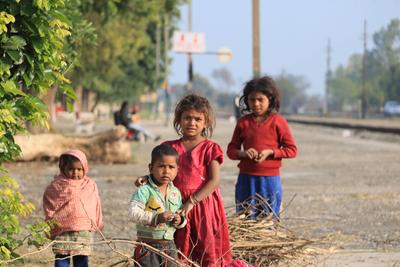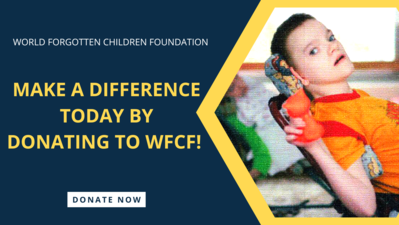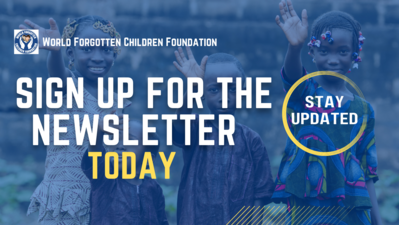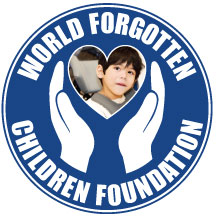
An investigation by BBC Africa Eye has revealed a hidden trafficking network that brings in children with disabilities from poor rural regions of Tanzania and forces them into what is nothing short of modern-day slavery, begging on the streets of Nairobi, Kenya (Citizen Digital, 2022). The documentary also exposed how criminals were buying donated wheelchairs to use for their trafficking trade. The documentary called “Forced to Beg: Tanzania’s Trafficked Kids” is the project showcasing the results of the BBC’s investigation (Wambui, 2022).
“[The documentary] shows how the magnanimity of Kenyans is exploited by criminals seeking to rake in money from the centuries-old habit that today has morphed into organized crime,” writes Mary Wambui for the Kenyan edition of Nation. The journalists reveal an evil trade that results in high numbers of children with disabilities begging in major towns in foreign countries. These children are trafficked from home against their will and with the promise of finding a better life in which they can provide for themselves. Children who fail to meet their daily target of money are subjected to physical, sexual and mental abuse. Mothers unknowingly give their children to these traffickers, unaware of the painful lives they will lead in faraway towns (2022).
Once these children are smuggled into Kenya, they are not allowed to contact their families and are forced to begin their “jobs” as beggars. In fact, the children do not receive any of the money they make from their time on the streets. Instead, they are subjected to constant abuse. The investigation showcases the case of Fara, a 14-year-old victim who was tricked into being trafficked into Nairobi and forced to beg on the streets. He was unable to escape from his traffickers and was held captive for almost half his life. “They (the traffickers) deleted my mum’s number,” Fara told BBC Africa Eye’s reporters, “I would love to go home. I stayed here in Kenya because there was no one to take me home” (Citizen Digital, 2022).

Mrs. Irene Wagema, the director of Zabibu Centre, a childcare institution, was able to take in some of the children rescued and revealed that the wheelchairs they use while begging are in fact rented out to them at Sh150 ($1.27 USD) a day by someone who gets them from various benefactors. A single beggar can make as much as Sh4,000 ($33.90 USD) in a day. This money is shared between a number of people involved with the trafficking process that includes boda boda riders and minders. They move the beggars from each begging station and watch them during the day so that the earnings are protected and that the beggars do not reveal their identities to anyone (Wambui, 2022).
Beggars spend a whole day outside, no matter whether it is the scorching sun or the freezing rain. Some of the children who lack wheelchairs are forced to crawl on the streets to search for spots with high traffic so that they could meet their daily earnings. When they fall seek, they never have access to medical attention (Wambui, 2022).
Children with disabilities coming from impoverished communities and backgrounds prove a lucrative source of income. Fara’s trafficker told his family that they would get a new house and a share of the money ought to be earned by Fara, but neither Fara nor his family saw any of the money earned. Some traffickers had extensive networks, with one operating eight trafficked beggars across three different properties in Nairobi and a nearby town. The full scale of the trafficking crisis is still unknown, as there have been no authoritative studies done. However, experts estimate that there are hundreds, if not thousands, of victims representing repression, exploitation and a life destroyed (Citizen Digital, 2022).
The churches in Africa and some disability organizations have condemned the smuggling of children with disabilities for begging. “We condemn these acts of trafficking in the strongest terms possible,” said Rev. Dr. Fidon Mwombeki, the Tanzanian Lutheran pastor and general secretary of All Africa Conference of Churches. “Trafficking persons whether they are disabled or not is a crime. “We also wish to remind that these children have a God-given right to care and protection as persons with disabilities.” Urging the two governments to ensure that the problem is taken care of in an appropriate manner, Mwombeki said that the African churches are ready to offer pastoral care to the needy children (Carroll, 2022).

Due to concerns for the victims’ safety, BBC Africa Eye alerted the police of the network, and the authorities raided a few properties and freed a number of beggars with disabilities, including Fara. The two main traffickers mentioned in the documentary were arrested and remain in custody with pending criminal charges (Citizen Digital, 2022).
Mrs. Wagema points at the treatment of people with disabilities and how that led to their eventual exploitation. “The society has refused to embrace disabled children,” she said. “We refuse to see the child behind them and only see the beggar, so we hand them coins to shrug them off” (Wambui, 2022).
The documentary ends on a solemn note. Fara learns that his mother is not receptive to his wishes of returning home. “I don’t think we have a good place for you here, let me look for a place that is not too remote then you can come home. If you come here, you will suffer,” said his mother (Wambui, 2022).
To learn more about child trafficking in Africa, read WFCF’s blog titled “Tackling the ‘Brazen Trade’ of Child Trafficking in Africa.”
To watch the investigative documentary produced by BBC, click here.
References:
Carroll, R. D. S. (2022, July 1). Churches in Africa, disability organizations condemn smuggling of disabled children for begging. World Council of Churches. Retrieved July 8, 2022, from https://www.oikoumene.org/news/churches-in-africa-disability-organizations-condemn-smuggling-of-disabled-children-for-begging
Citizen Digital. (2022, July 8). Undercover investigation reveals disabled Tanzanian children trafficked to Kenya. Citizen Digital. Retrieved July 8, 2022, from https://www.citizen.digital/news/bbc-africa-eye-undercover-investigation-reveals-disabled-tanzanian-children-trafficked-to-kenya-n301094
Wambui, M. (2022, June 29). Documentary exposes how disabled children become slaves of traffickers. Nation. Retrieved July 8, 2022, from https://nation.africa/kenya/news/documentary-exposes-how-disabled-children-become-slaves-of-traffickers-3863248
|



